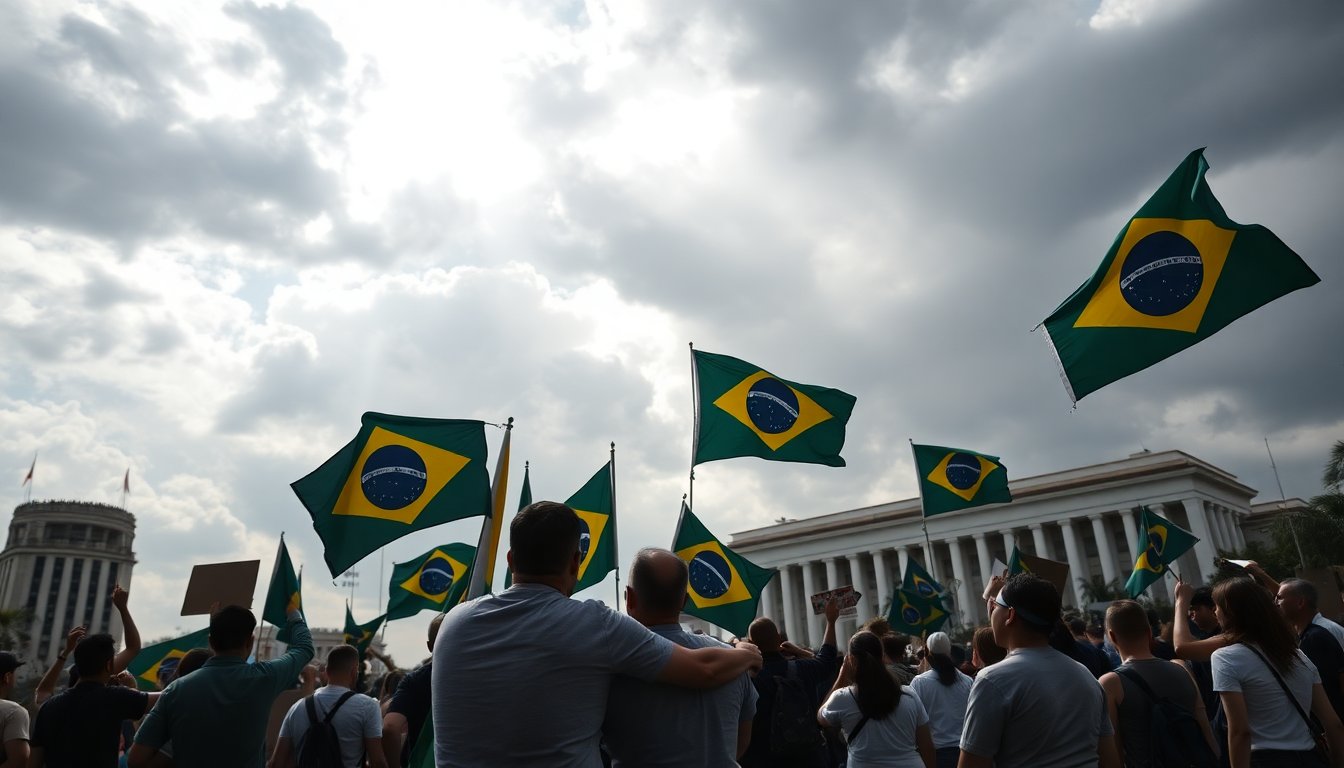Table of Contents
The recent conviction of former Brazilian President Jair Bolsonaro has profoundly impacted Brazil’s political landscape and raised critical questions about the future of US-Brazil relations. Convicted of attempting to stage a coup following his electoral defeat in 2022, Bolsonaro now faces a prison sentence exceeding 27 years. This verdict marks a pivotal moment in Brazilian governance and politics. This article examines the trial’s details, the implications of the verdict, and the intricate relationship between Bolsonaro and his political allies in the United States.
Overview of the Trial and Conviction
Bolsonaro’s trial was unprecedented in Brazilian history, as he became the first former president found guilty of attempting to overturn election results. The Supreme Court ruling, supported by four out of five judges, stemmed from serious allegations, including plans to assassinate political opponents and orchestrate a coup to retain power. The court determined that Bolsonaro conspired with military and cabinet officials to discuss an emergency decree to suspend the October 2022 election results. This action was viewed as an effort to validate unsubstantiated claims of electoral fraud and to maintain his position despite losing to leftist leader Luiz Inácio Lula da Silva.
The trial commenced on September 9 and concluded recently with the verdict. It was marked by significant tension. Bolsonaro’s defense team has consistently maintained his innocence and expressed intentions to appeal the ruling. However, legal experts suggest a successful appeal is unlikely due to the overwhelming evidence presented during the trial.
Political Repercussions and Public Response
The reaction to Bolsonaro’s conviction has been deeply polarized. Supporters of the former president have rallied to his defense, characterizing the prosecution as a “witch-hunt” aimed at undermining his political legacy. This backlash has created a charged atmosphere, with substantial public protests supporting and opposing Bolsonaro’s actions. Conversely, supporters of the ruling Workers Party celebrated the verdict as a victory for democracy and accountability in Brazil.
Politically, Bolsonaro’s conviction has ramifications for his allies and the broader Brazilian political landscape. Seven of his associates were also convicted on related charges, indicating a wider network of complicity. Discussions about potential pardons for Bolsonaro are surfacing, as some congressional allies attempt to introduce amnesty laws to mitigate the trial’s consequences.
Implications for US-Brazil Relations
The fallout from Bolsonaro’s conviction is particularly significant concerning US-Brazil relations. Former President Donald Trump has been a vocal supporter of Bolsonaro, criticizing the trial and expressing strong sentiments against the prosecution. Trump’s administration previously imposed 50% trade tariffs on Brazil, with Bolsonaro’s legal troubles cited as a primary motivator.
The White House is closely monitoring the situation, expressing concerns about potential economic or military responses should Bolsonaro’s legal issues escalate. Brazilian President Lula has firmly rejected any perceived interference from the US, emphasizing the sovereignty of Brazil’s legal system and institutions.
As Brazil navigates this complex political landscape, the ramifications of Bolsonaro’s conviction will likely reverberate throughout Latin America and beyond, potentially reshaping diplomatic ties and economic policies between Brazil and the United States.


